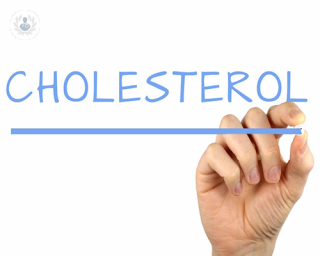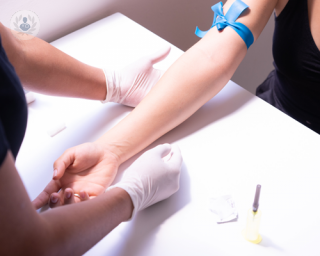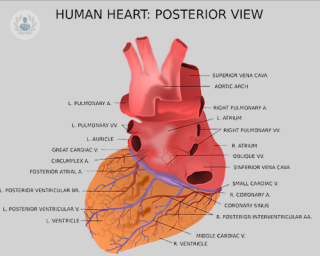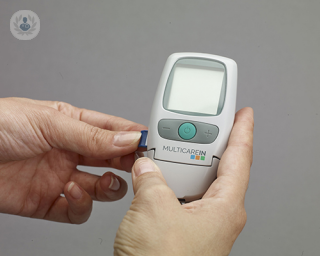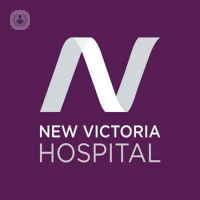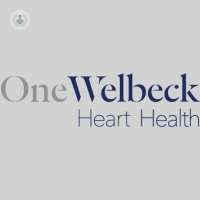Cholesterol
Dr John Bolodeoku - Endocrinology, diabetes & metabolism
Created on: 11-13-2012
Updated on: 02-07-2024
Edited by: Sophie Kennedy
What is cholesterol?
Cholesterol is a fatty substance known as a lipid, which is mainly made by the liver and can also be found in some foods. It is vital for the human body to function properly, producing hormones, vitamin D and bile, building healthy cell structures and helping efficient metabolism. However, if certain levels of cholesterol are too high in the blood, it can result in a heart disease or stroke, among other serious health conditions.
There are two types of cholesterol:
- Low-density lipoprotein (LDL): also called the 'bad' cholesterol, high levels of LDL in the blood can clog up arteries, leading to a heart attack or stroke. LDL transports cholesterol particles through the body to the cells.
- High-density lipoprotein (HDL): also called the 'good' cholesterol, HDL helps to remove excess cholesterol from the body, carrying it from the cells back to the liver where it will be cleared away.
Cholesterol can increase with age. It is also asymptomatic (has no symptoms), only being detected through a blood test ordered by a cardiologist.
There is also something else that may need to be monitored if someone has high cholesterol and that is triglycerides. Having a high level of triglycerides, a type of fat (lipid) in the blood, can also increase the risk of heart disease.

Why is it important to lower cholesterol?
Evidence shows that high cholesterol levels can increase the risk of having a heart attack, a stroke, a mini-stroke (known as transient ischaemic attack), and a peripheral arterial disease (PAD).
Too much cholesterol can combine with fat, calcium and other substances in the blood to build up plaques of fatty deposits in the artery wall. Eventually, these plaques clog the arteries, causing them to narrow and harden in a condition known as atherosclerosis. Atherosclerosis can restrict blood flow and oxygen supply to the heart, brain and the rest of the body. This can cause symptoms, such as chest pain (angina).
Sometimes, the plaques will suddenly break and rupture, to form a blood clot that blocks the artery and stops normal blood flow. If a blood clot occurs in a heart artery, it can result in a heart attack. If it happens in a brain artery, it can cause a stroke.
Cholesterol can also increase the risk of a blood clot in other parts of the body. The risk of developing coronary heart disease is also higher when the blood’s cholesterol level increases.
What causes high cholesterol?
There are many factors that increase the chances of having high cholesterol, which include:
- An unhealthy diet - especially eating food with high levels of trans fat and saturated fat, such as those found in meats, dairy and processed foods. These foods boost LDL cholesterol levels and can also lead to certain lipid disorders.
- Smoking: lowers HDL levels and is one of the biggest risk factors for developing heart diseases.
- Physical inactivity: exercise strengthens the heart, boosts your body's HDL levels and decreases blood pressure levels.
- Alcohol: too much alcohol intake can increase your total cholesterol level.
- Age: your liver loses the ability to remove LDL cholesterol as you grow older.
In addition, those who have a family history of stroke or heart disease are more likely to develop high cholesterol. This is also the case for people with high blood pressure (hypertension), obesity or diabetes. People who follow a healthy diet can inherit a condition called familial hypercholesterolemia, which can cause high cholesterol and an early-age heart attack.
What should my cholesterol levels be?
A blood test for cholesterol, called a lipid profile, measures:
- Total cholesterol: the total amount of cholesterol in the blood, including both HDL and LDL cholesterol
- HDL cholesterol
- LDL cholesterol
- Triglycerides
The levels of blood cholesterol is measured in millimoles per litre of blood (mmol/L.)
- Total cholesterol levels should be 5mmol/L or less for healthy adults or 4mmol/L or less for those who are at high risk.
- Low-density lipoprotein (LPL) levels should at 3mmol/L or less for healthy adults or 2mmol/L or less for those at high risk.
- High-density lipoprotein (HDL) levels should be 1mmo/L or above for healthy adults.
How can I lower my cholesterol level?
To reduce the level of cholesterol, it is recommended to maintain a healthy and balanced diet, which is low in fatty foods. Regular exercise, weight management and quitting smoking are also recommended to lower the levels of cholesterol.
If following these steps does not reduce the cholesterol levels, a doctor may prescribe medication such as statins (the main type of cholesterol-lowering drug) to help. Statins block the chemicals in the liver that help to make cholesterol, which leads to a reduction in blood cholesterol level.
Successful treatment with statins can lower LDL cholesterol levels by 30 per cent and up to 50 per cent with higher doses. They are usually prescribed to people who are at a high risk of heart disease and will need to be taken for life. Other medications may include tablets, inhibitors and injections.
The type of medication taken will depend on your risk factors, your age, your overall medical condition and your possible drug side effects. To successfully decrease cholesterol levels, medication will need to be taken in combination with a diet that supports lowering cholesterol.

Low cholesterol diet
A balanced diet, low in saturated fats can reduce LDL (bad cholesterol). The following foods should be avoided or the intake reduced:
- Fatty meats, poultry and meat products
- Butter and lard
- Cream, sour cream and ice cream
- Cheese
- Cake and biscuits
- Chocolate
- Coconut oil
- Sugary drinks
- Sodium
What is dyslipidemia?
Dyslipidemia is the term used for abnormal cholesterol or triglycerides levels in the blood. This can either be: having a level of LDL cholesterol that is too high; an HDL cholesterol level that is too low or raised levels of triglycerides.
Cholesterol in eggs
While eggs are naturally high in cholesterol, current findings suggest that this cholesterol doesn't appear to increase cholesterol levels in the same way that other foods (for example, that are high in saturated fats) do.
Egg whites contain protein, but no cholesterol. Eat only the egg whites if you like to eat eggs but don't want the cholesterol. You can also use egg substitutes that are cholesterol-free.
Can cholesterol cause headaches or dizziness?
Cholesterol doesn't cause headaches or dizziness, but feeling dizzy or lightheaded may indicate a blocked artery, which could lead to a stroke. Seek immediate medical attention if you experience dizziness accompanied by numbness, slurred speech and a sudden, severe headache.
Can cholesterol affect eyesight?
While cholesterol is asymptomatic, in young people, extremely high levels of LDL cholesterol and triglycerides can sometimes manifest as fat deposits deep in the edge of the cornea, creating a grey or white arc called an arcus senilis.
An arcus senilis will usually develop before the age of 45 in people with familial hypercholesterolemia, being associated with an increased risk of heart disease.

